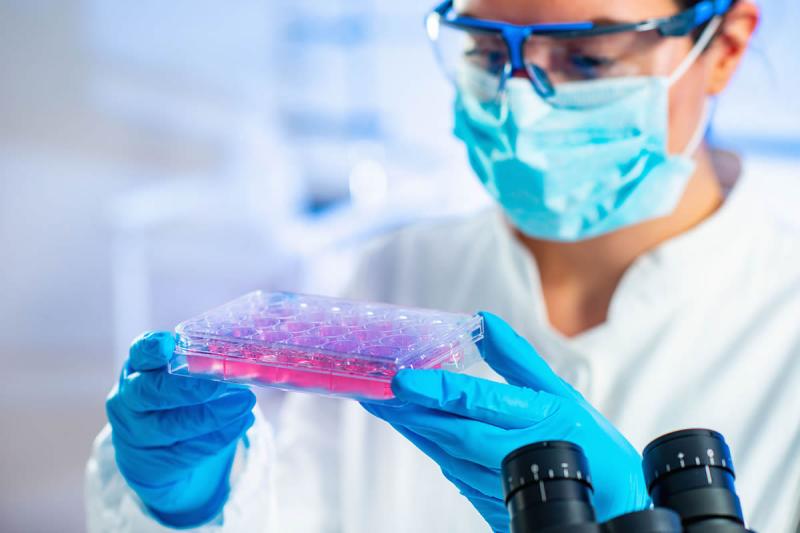What are Stem Cells?
Stem cells are the basic cells that help humans grow, develop, heal and repair themselves throughout life. They have the unique capacity to evolve into many different types of specialized cells. All stem cells that renew themselves through cell division are deemed undifferentiated cells that can differentiate into a cell or a tissue with a specialized function.
Types of Stem Cells
There are mainly three types of stem cells that are commonly discussed: embryonic stem cells, adult stem cells and induced pluripotent stem cells.
Embryonic Stem Cells
Embryonic stem cells are derived from embryos that are a few days old. Stem Cell Therapy are pluripotent cells that have the ability to divide for indefinite periods in culture and have the potential to become any type of cell in the body. Embryonic stem cells can help researchers gain a better understanding of how an embryo develops as well as insights into debilitating diseases and potential treatments. However, conducting research on embryonic stem cells does raise some ethical issues as it requires the destruction of potential human life in the embryos.
Adult Stem Cells
Adult stem cells are found throughout the body after embryonic development. They exist in each tissue and organ and differentiate into the specialized cells of that tissue during development, growth and normal tissue turnover. Their role is to maintain and repair the tissue in which they are found. For example, bone marrow contains mesenchymal stem cells that can differentiate into a variety of cell types. Adult stem cells may have more limited differentiation potential compared to embryonic stem cells but can be isolated without destroying potential human life.
Induced Pluripotent Stem Cells
Induced pluripotent stem (iPS) cells are adult cells that have been genetically reprogrammed to an embryonic stem cell-like state through the forced expression of genes and factors important for maintaining the defining properties of embryonic stem cells. iPS cells can self-renew and have pluripotent differentiation ability. They can be patient-matched and derived directly from adult cells like skin or blood. This eliminates many of the ethical issues associated with embryonic stem cells. iPS cells also have potential for generating cell types and tissues affected by specific diseases to better understand disease mechanisms and potentially discover new treatments.
Therapeutic Applications of Stem Cells
Some of the therapeutic applications currently being studied for stem cells include neurological conditions, spinal cord injury, heart disease, diabetes, bone and cartilage repair, liver disease, and more. Here are a few examples:
Neurological Conditions
Conditions like Parkinson's disease, Alzheimer's disease, spinal cord injuries and others where nerves are damaged could potentially be treated with stem cells. Embryonic or induced pluripotent stem cells may be able to differentiate into neurons, glial cells and myelin-forming cells to repair damaged areas in the brain or spinal cord. Clinical trials using stem cell transplants are exploring safety and potential benefits for these debilitating conditions.
Heart Disease
Stem cell therapy is being explored as a treatment for heart disease. Following a heart attack, the heart loses cardiomyocytes which leads to scar tissue formation and reduced heart function. Stem cell transplantation aims to regenerate new cardiomyocytes, blood vessels and restore heart function. Initial clinical trials provided encouraging results showing improved cardiac functioning and reduced damage from stem cell injections following a heart attack. Larger clinical trials are ongoing.
Bone and Cartilage Repair
Mesenchymal stem cells from bone marrow have the ability to differentiate into cells that form bone and cartilage tissues. This makes them an attractive option for treating bone fractures that fail to heal as well as cartilage injuries from trauma or degenerative diseases like osteoarthritis. Preclinical studies demonstrated cartilage and bone regeneration. Clinical trials are evaluating the safety and effectiveness of stem cell treatments for bone and joint disorders.
Diabetes
The insulin-producing beta cells in the pancreas are destroyed in type 1 diabetes patients. Stem cell therapy research aims to generate replacement beta cells that could restore normal blood glucose regulation. Several approaches are being explored including transplanting islet cells derived from embryonic or adult pancreatic stem cells, or generating insulin-producing cells from iPS cells. While challenging, these approaches hold promise for developing a functional cure for diabetes.
Safety and Challenges
While stem cells show exciting potential, major challenges remain for clinical applications. Safety is a top priority to ensure transplanted cells do not accumulate, cause unwanted tissue formation or trigger immune rejection. Standardized procedures are required for cell sourcing, processing, characterization and quality control. Large-scale production of purified therapeutic cells is another hurdle. The effectiveness of stem cell treatments also varies with the disease and requires rigorous testing. Despite progress, most applications are still in early clinical research phases. Careful investigation through well-designed clinical trials will be necessary to fully understand risks versus benefits. Continued research support can help unlock stem cells' future as a mainstream therapy.
Get this Report in Japanese Language-幹細胞治療
Get this Report in Korean Language-줄기세포 치료
About Author-
Priya Pandey is a dynamic and passionate editor with over three years of expertise in content editing and proofreading. Holding a bachelor's degree in biotechnology, Priya has a knack for making the content engaging. Her diverse portfolio includes editing documents across different industries, including food and beverages, information and technology, healthcare, chemical and materials, etc. Priya's meticulous attention to detail and commitment to excellence make her an invaluable asset in the world of content creation and refinement.
(LinkedIn- https://www.linkedin.com/in/priya-pandey-8417a8173/)
